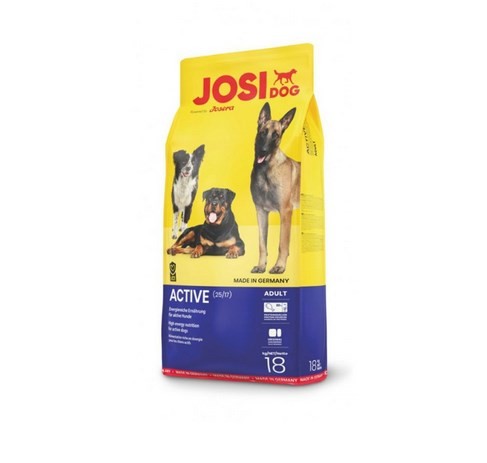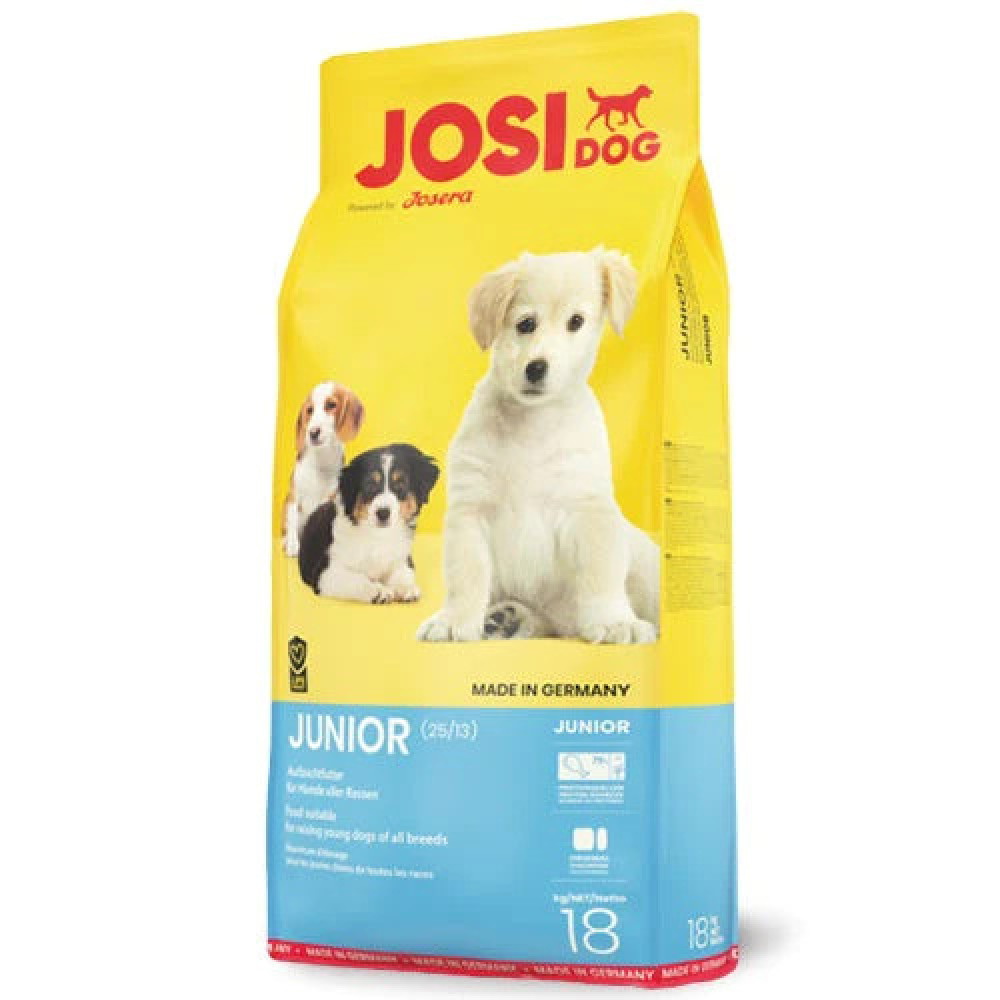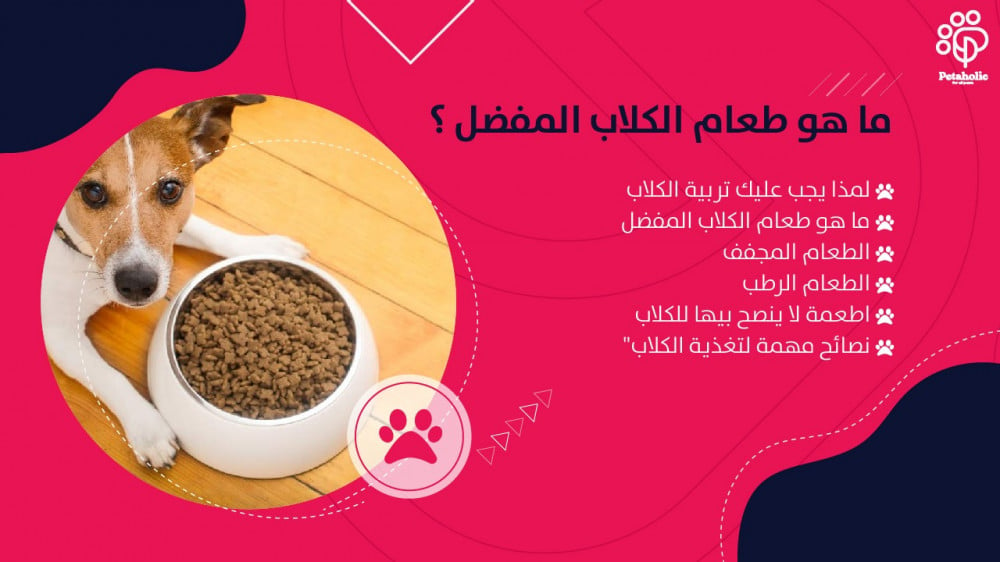
If you are thinking about raising your dog to be your friend, you must know the favorite dog food, as raising pets in general requires great care, from allocating a place to sleep, preparing different foods suitable for them, visiting the veterinarian, and other means of care, and for this we will learn during our article from Petaholic has a lot of the most important information about raising dogs, their favorite food, and the food that may harm them.
Why should you raise dogs ?
We will now present the most important behavioral and health benefits that result from raising dogs for children, the most important of which are the following:
- Activity Since it is well known that dogs enjoy playing, having a good time and participating in different activities and exercises, training your pet by taking him for walks outdoors as well as playing with him is one of the best things you can do for your child.
- Behavior Raising dogs at home can help young children behave better, because it instills in them useful traits that lead to noble feelings and emotions, the tendency to love and serve others, and less feelings of loneliness and isolation that many young children suffer from.
- Safety Everyone who has a dog at home, especially children, feels protected and comfortable, especially if the dog is for guarding.
- Working with dogs develops physical and social abilities thanks to the body’s motivation to move and many activities that take place outside the bedroom, away from televisions and computer games.
- Children's mental health is improved by watching dogs playing and jumping, because dogs' behavior is often entertaining and makes young children feel immense happiness and satisfaction.
- Dogs help young people develop knowledge and social skills, in addition to their physical and psychological health. Making new acquaintances prevents them from feeling lonely and isolated, which is a positive thing.
What is your favorite dog food?
Raising dogs requires knowing all the details related to them, and this knowledge includes everything from the correct diet and favorite dog food, and the most important of these products are:
First: dried food:
Dry food is better for your dog's teeth and works as a natural abrasive to remove waste and bacteria. It is also easier to store, less expensive, and does not spoil as quickly as wet food. The best of these products are the following:
Juicy Duke dry food for active adult dogs, 15 kg
Juicy Duke Active Dry Food for Adult Dogs
Juicy Dog Active's nutrient-rich, gluten-free formula ensures that even very active dogs get all the energy they need. With extra energy, this high energy food is suitable for athletic dogs. Complete feed for adult dogs
- It is also one of the favorite dog foods, as it includes a complete diet that contains everything your dog needs to stay happy and healthy
- Nourished with Omega 3 and 6 to enhance your dog's coat, producing a gorgeous, silky appearance 80% animal protein High percentage of meat for easy digestion,.
- When you get up By clicking here It will show you all the information about it. Get it.
Or learn about other types according to the dog’s breed and age from here
Josie Duke Junior for puppies 15kg
- Dog food intended for puppies.
- Gluten-free formula with modified energy content to support moderate growth rates and strong bones.
- Quality guarantee from Juicy Duke, manufactured according to international specifications that care about the highest quality standards.
- Contains no artificial preservatives that are harmful to pets of all types
- The specially adjusted calcium/phosphorous ratio makes it suitable for puppies and supports their growth.
- Learn more or shop other products here
Second: Wet food:
They cost little and have a long shelf life. However, not all brands of canned dog food provide the protein your dog needs. Most canned dog food contains about 75% water. The higher the water level, the less nutrition your dog gets from the food. He eats it and its products include the following:
Royal Canin wet food for small dogs, 85g
- This formula contains nutrients that help support healthy skin, rich in EPA-DHA.
- Royal Canin Mini Adult is designed to suit your adult dog's unique nutritional needs of complete dog feed - for adult and puppies (weighing 1-10kg) - over 10 months.
- The price is 8.50 Saudi riyals.
- Royal Canin is a favorite dog food that contains a lot of vitamins.
- If you want to get it click here .
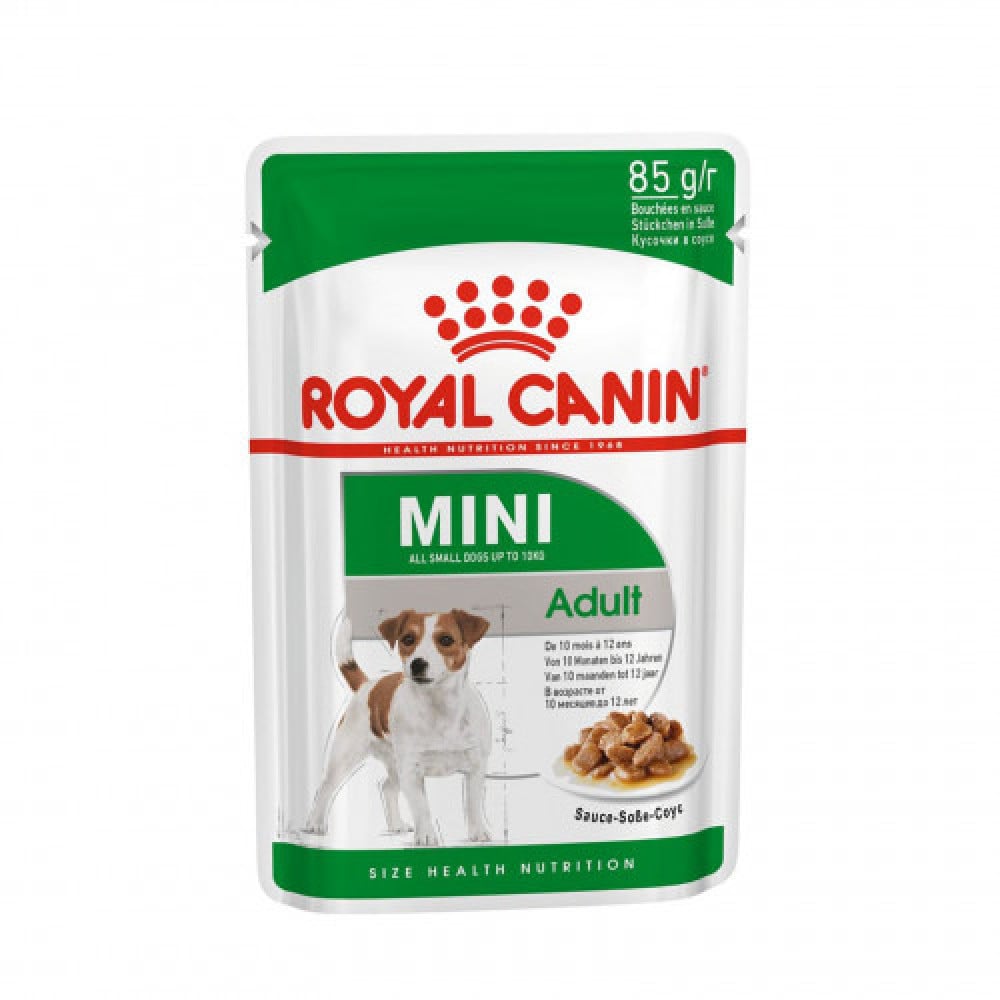
Royal Canin Wet Food for Small Breed Puppies, 85g
- Royal Canin Wet Food for Puppies in Broth from 2 to 15 Months.
- Supports a healthy immune system and supports digestive health.
- Meets the energy requirements of small breed puppies.
- The price is 8.50 Saudi riyals.
- Click here to get your favorite dog food with ease.
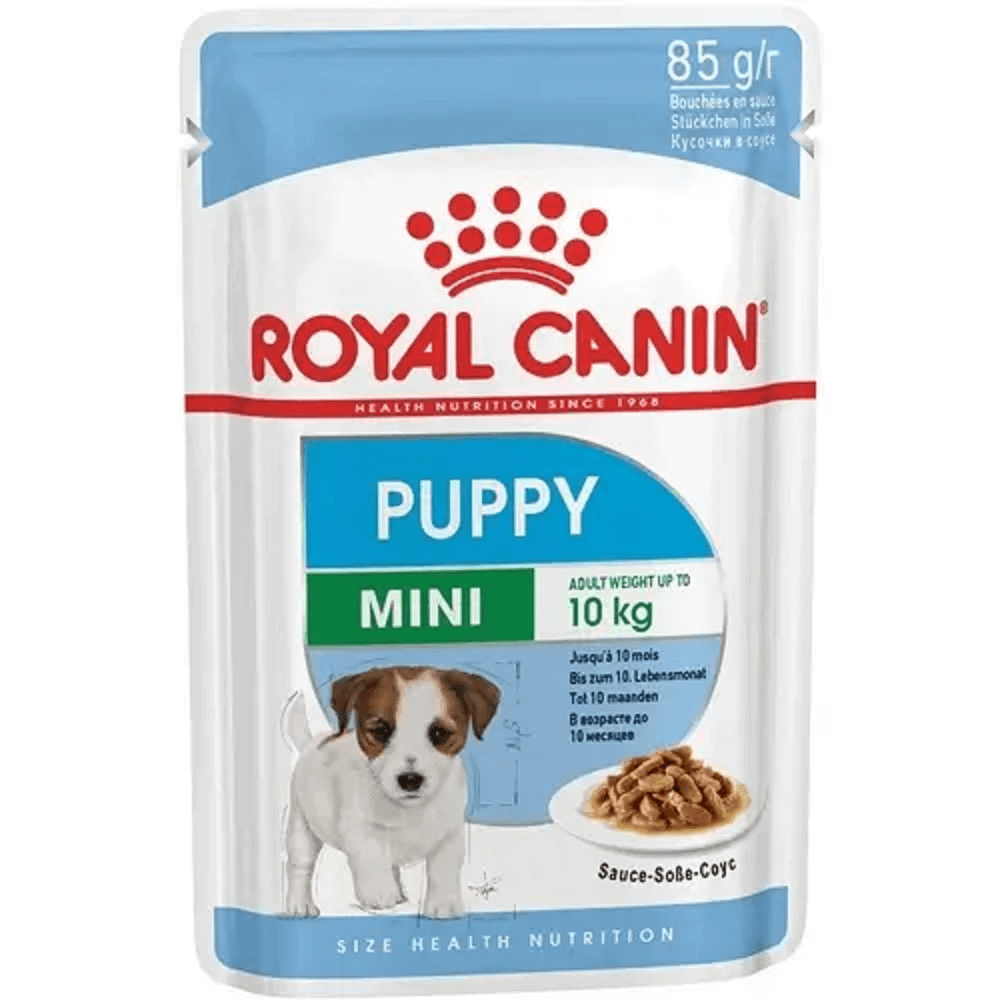
Royal Canin Wet Food for Large Breed Puppies, 140gk
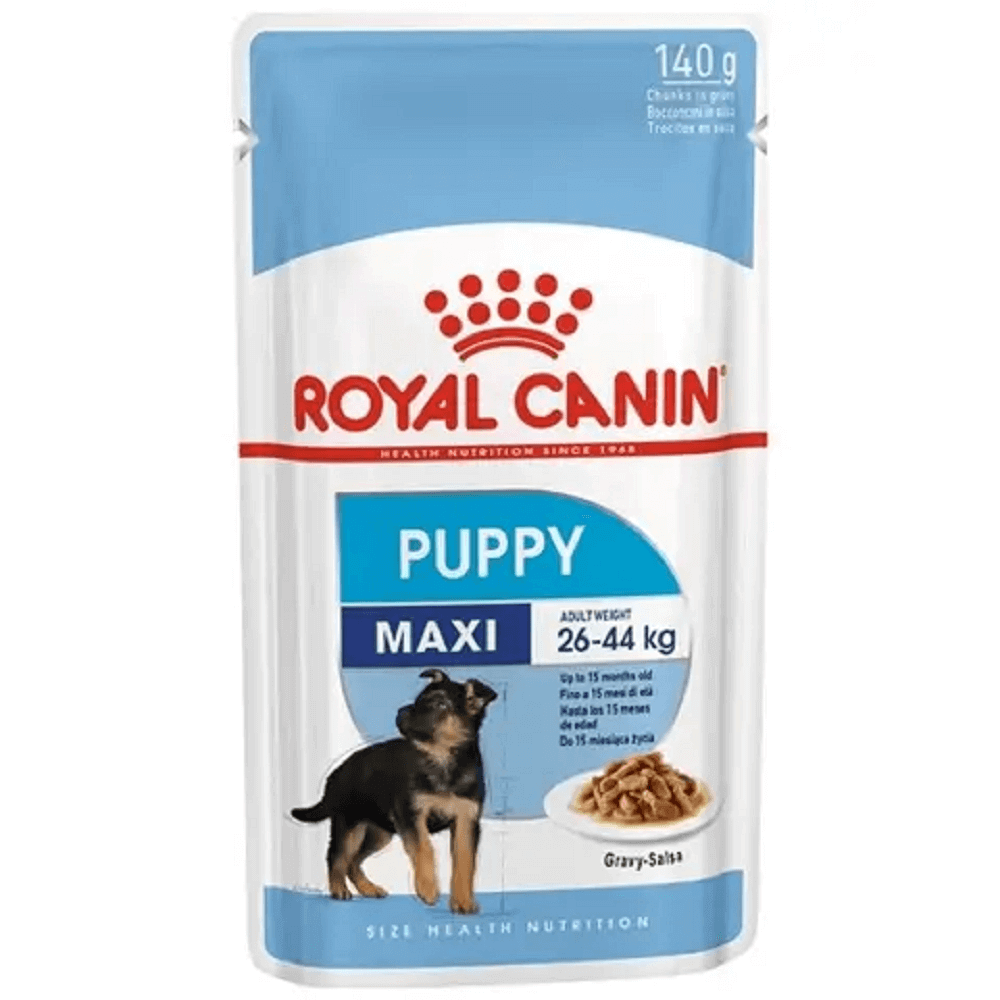
- It is considered one of the favorite wet dog foods for large breed puppies with broth from two to 15 months.
- Supports a healthy immune system and digestive health.
- The price is 10.01 Saudi riyals.
- Click here to get this product easily
Foods not recommended for dogs
What is forbidden for dogs to eat?
There are some types of foods that may harm the dog’s health, so you must know what they are as follows:
- Avoid feeding your dog foods that contain xylitol, as this ingredient can lead to kidney failure in dogs.
- Keep dogs away from foods and drinks that contain caffeine such as coffee, tea, cocoa, chocolate, and energy drinks. Caffeine can be fatal to dogs.
- It is best to stay away from feeding your dog meals that contain processed or preserved sugars.
- Garlic and onions can cause anemia in dogs by destroying red blood cells and raisins and grapes may lead to kidney failure. A small amount makes the dog sick, leading to frequent vomiting, lethargy, and sadness.
- Milk and other dairy products Consuming large amounts of milk and dairy products can lead to food allergies, which can cause itching, as well as diarrhea and other digestive problems.
- Fat and Bones Although it may seem natural that they are a favorite dog food and offer your dog a bone, he can choke on them, and the bones can also break and cause wounds to your dog's digestive system. Fat from cooked and undercooked meat can cause pancreatitis in dogs.
- Do not give your dog avocados because it may make him vomit and have diarrhea, and if you eat the seeds, your dog may develop a fatal intestinal obstruction.
- Most people are aware that chocolate is harmful to dogs because of theobromine, an ingredient in all types of chocolate, including white chocolate, that is the problem with chocolate. Your dog may vomit, have diarrhea, have heart problems, tremors, have seizures, or even die from chocolate poisoning.
- Uncooked eggs are sometimes included in "raw diets" for dogs, although doctors advise against them as it may be harmful to their health.
- Raw meat and fish can also carry food poisoning germs, as can raw eggs.
- It is not recommended to give dogs salty meals such as pretzels or potato chips. A dog who consumes a lot of salt may suffer from extreme thirst, vomiting, diarrhea, sadness, chills, high body temperature, cramps, and even death, which are signs of eating too much salt.
- Dogs can suffer the same effects as people from eating too much sugar and junk food, which can lead to your dog being overweight, having dental problems, and even diabetes.
You should always consult a veterinarian to determine a healthy and appropriate diet for the dog, and avoid feeding it any food that could be harmful to its health.
How often should dogs be fed?
The number of meals a dog needs depends on several factors, including the dog’s size, age, activity level, and health condition. Here are some general guidelines:
1. Small dogs (under 6 months):
Small dogs can be fed 3 to 4 meals a day.
- The frequency can be reduced gradually as the dog grows older.
2. Adult dogs (6 months and older):
Adult dogs are usually fed twice a day.
The appropriate time for the two meals can be determined according to a schedule that is compatible with the work schedule and daily life.
3. Large or active dogs:
Large or active dogs may need more meals, and food can be divided into 3 times a day.
4. Old dogs (7 years and older):
Older dogs may need to break up food into smaller, more frequent meals to reduce pressure on the stomach.
The amount of food given should depend on the individual needs of the dog, and it is preferable to consult a veterinarian to determine the appropriate amount of food and determine the appropriate timing for meals. Remember, monitoring your dog's weight and adjusting the amount of food based on his specific needs is important to maintain his health.
What do wild dogs eat?
Wild dogs, sometimes known as feral wild dogs or feral wild dogs, live in the wild environment and rely on a variety of food sources to meet their nutritional needs. Here are some things that wild dogs might eat:
1. Meat: Meat sometimes comprises a large percentage of a wild dog's diet. Wild dogs can hunt small animals or eat prey.
2. Fruits and vegetables: Wild dogs may eat some fruits and vegetables that are available in their natural environment.
3. Insects and worms: Insects and worms may be part of a wild dog's diet.
4. Food waste: Wild dogs may scavenge food waste from human camps or urban settings.
5. Plants and herbs: Some wild dogs can eat natural plants and herbs.
It should be known that the diet of wild dogs changes according to geographical location and surrounding conditions. Wild dogs may be better able to adapt to the food sources available in their environment.
What do puppies eat after weaning?
After weaning, puppies begin to gradually transition from relying on mother's milk to eating solid food. Here are some tips on what to feed dog puppies after weaning:
1. Puppy food:
- You can start by feeding commercially available puppy food that is specifically designed to meet their developmental needs.
2. Gradual transformation:
- It is preferable to gradually switch from liquid to solid food. You can mix the dry food with small amounts of dog milk or water to make the transition easier.
3. Meal timing:
Puppies may need small, frequent meals throughout the day. It is best to serve 3-4 meals a day at first.
4. Water saving:
Puppies should be provided with adequate amounts of water at all times to help hydrate them.
5. Monitor the weight of the puppies:
- Monitor the weight of the puppies regularly to ensure that they are developing properly. In case of weight gain or loss, it is preferable to consult a veterinarian.
6. Consultation with a veterinarian:
- Before making any changes to a puppy's diet, it is best to consult a veterinarian to ensure that the food meets their nutritional needs.
The transition to solid food should be gradual and timed to meet the puppies' growing needs.
Important tips for feeding dogs
There are a set of tips that must be followed in order to feed your dog in a healthy and proper manner, and we will learn about them in the next few lines
- Be sure to review the ingredients of dog food and their compatibility. To determine the ideal weight and nutrition for your dog, talk to your veterinarian.
- You may need to change your dog's diet in some unique circumstances, such as those involving food allergies and medical problems.
- It's difficult to provide everything your dog needs in a homemade diet, so buy easily accessible dog food in stores rather than making your own.
- Choose a favorite dog food labeled “complete” to ensure it contains all the required nutrients your dog needs.
- Find out what tastes you prefer because some dogs tend to appreciate (or dislike) certain food flavors.
- Dogs can consume meat and plant meals because they are omnivores.
- Monitor your dog when he eats to ensure he is eating regularly, slow him down if he is, and avoid exercising immediately after eating as this may make your dog bloat.
- If you decide to change your dog's diet, you can do so gradually, starting with a small amount of new food and a small amount of old food, then gradually increasing the new food each day and reducing the amount of old food.
We learned about the favorite dog food through our article and provided you with many favorite products. We also gave you some advice about dog foods and what they should avoid so as not to harm their health. Follow us for more about dogs.


